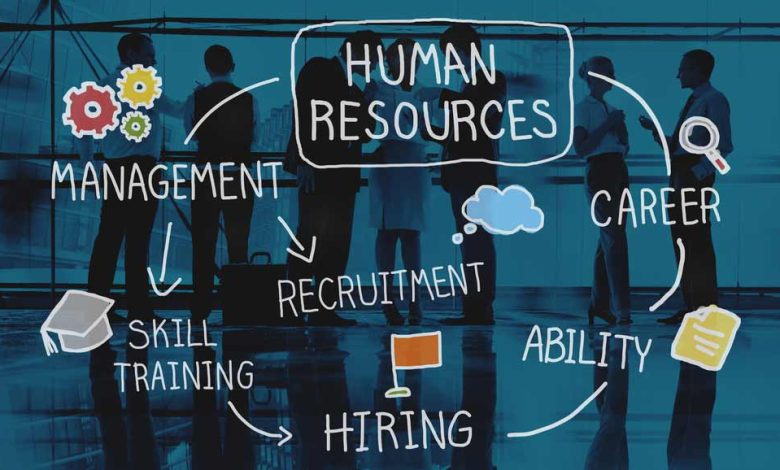Why do Managers need HRMS this year?

Introduction
In today’s business world, managers face more challenges than ever before. The demand for productivity and efficiency is at an all-time high, and it seems as though there is never enough time to get everything done. With so many tasks on your plate, how can you possibly find the time to keep up with employee records?
The answer lies in an HRMS solution. An online HRMS solution makes it easy for you to track all of your employees’ information in one place, giving you full visibility into their performance. You’ll know who’s doing well and who needs help or training. But what else can an HRMS do for you? Here are just a few ways that HRMS software helps managers:
Helpful Tools
Keeps track of employee information
A good Hr solution will allow you to keep track of all employee information from one central location. This includes things like payroll data, compensation plans and benefits information. Having this information centralized means that you don’t have to spend valuable time searching for it through multiple systems or asking subordinates for updates. It also means that if there are any changes in policy or benefits coverage you know before its too late to take the right action.
Time and Attendance Tracking
Time and attendance management is a critical part of running any business. It’s also one of the most challenging aspects of HR management. In fact, most companies feel that time tracking is too expensive, too time-consuming and doesn’t provide enough value for their employees. That’s where HRMS comes in. Time tracking is just one of many features available through an HRMS system that help you manage your employees’ time more efficiently and effectively. How does an HRMS help manage time?
The answer lies in the power of automation. Automation means less work for you as a manager and more time to focus on strategic initiatives — which is what every manager wants! With automation, you can Reduce manual processes like payroll by 90%. That means less work for you as a manager and more time to focus on strategic initiatives.
Policy making
Human resource management systems (HRMS) may be a suite of software applications that provides a central repository for employee data, including demographics, benefits, and performance evaluations. HRMS applications also help managers create and enforce company policies, such as vacation time and overtime regulations.
Automation of tasks
The primary benefit of an HRMS is that it saves time by automating many routine administrative tasks. For example, an HRMS can automatically send out notifications when someone’s benefits expire or when they’re eligible for a raise or promotion. Managers can also use HRMS applications to collect and analyze performance data from across departments or teams in order to identify areas where employees need additional training or coaching.
Compliance
In addition to saving time, Hr solutions helps managers ensure compliance with labor laws by tracking all employment-related documents in one place — namely payroll records and employee contracts — so they never get lost in the shuffle of day-to-day operations. It also allows managers to automate tasks like paperwork filing, which otherwise would require manual entry into various databases by each individual department head.
Leave management
Leave management is one of the most critical aspects of HRM. This is the process of managing all types of leaves, including sick leave, annual leave, maternity leave and so on. Leave management includes planning for leave, recording it and checking that employees have returned to work.
Online Leave management process ensures that your employees take their allotted time off and do not abuse the privilege. It helps you plan ahead by knowing how many people will be out of work at any point in time. This prevents overspending on temporary staff, who are sometimes called “replacement employees” or “substitutes”. The HRM department may also handle requests for time off in cases where an employee is travelling abroad or working remotely.
Employee relations
Employee relations refers to all activities designed to ensure that employees stay happy and productive at work. The relations includes things like dealing with grievances raised by employees (and other personnel), implementing performance management systems and handling disciplinary issues that arise from poor performance or misconduct by employees.
Saving time
HRMS solutions help managers by processing the information that they need to do their jobs. It’s hard to imagine a manager who doesn’t want as much information as possible about their employees, but even if you’re not a manager, you can benefit from using HRMS software.
Managers who use HRMS solutions can put together better performance reviews and have more accurate records of employee attendance and other workplace activities. They may be able to manage their time more effectively, because they won’t have to spend as much time tracking down employee records or entering data into spreadsheets. The bottom line is that HRMS solutions are designed to make it easier for managers to do their jobs better and more efficiently.
Productivity Management
Increase productivity by improving employee engagement with self-service tools that allow employees to see their schedules, submit timesheets and request time off right from their phone or computer. This also helps managers keep better track of employee absences because they’re notified when they log into their account with any changes in schedule or status updates (such as vacation requests).
Conclusion
The benefits of the HRMS are not limited to just the employees and managers. The company can also benefit from it by improving their productivity and efficiency. The HRMS helps in managing time and attendance of employees. This is because it makes sure that no employee is working on a holiday or taking leave without prior permission. Online Human resource management software also helps in keeping track of employee performance, which means that the company can reward their employees based on their performance rather than their tenure. The HRMS makes sure that all employee data is stored in one place, which makes it easier for managers to access it whenever they need to know about an employee’s performance or attendance history




